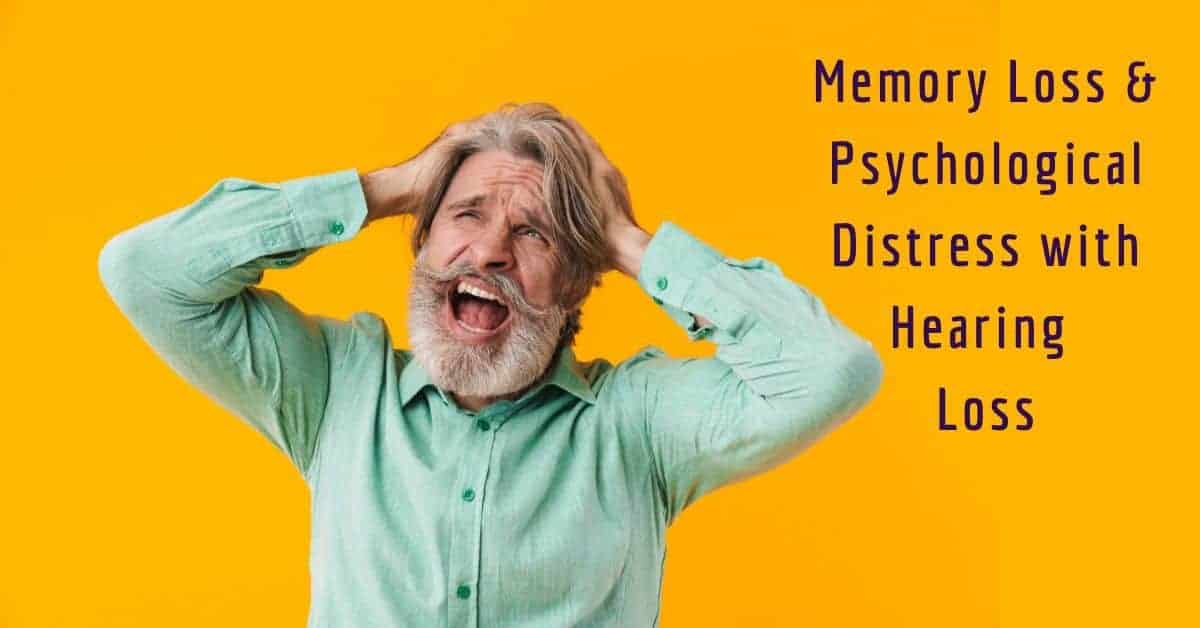Throughout the last decade or so, medical researchers have uncovered a strong correlation between hearing loss and an increased risk for developing memory loss and cognitive decline. The correlation tends to get stronger as the degree of hearing loss increases. Luckily, the use of hearing aids has been shown to decrease the risk of developing cognitive decline such as Alzheimer’s disease amongst people with hearing loss.
Recently, a new study has been published in the Geriatrics & Gerontology International journal that helps confirm and expand this correlation.
About the Study
The study culled data from a 2016 Comprehensive Survey of Living Conditions in Japan and cross examined the data from other research. The research included 137,723 people aged 65 years or older who were living at home, without a clinical diagnosis of dementia.
Study participants were asked to self-report whether or not they experienced hearing loss. Participants were also asked questions about any limitations they may experience to engaging in outdoor activities, psychological distress and memory loss. All of these findings are based on self-reports from participants.
Study Findings
The study determined that prevalence of hearing loss is associated with increased limitations to engaging in outdoor activities, increased psychological distress, and increased prevalence of memory loss.
In fact, among the participants who self-reported hearing loss, 28.9% reported limitations to their ability to participate in outdoor activities, compared to only 9.5% of those who do not have hearing loss.
Among the participants who self-reported hearing loss, a whopping 39.7% reported psychological distress. This is significant compared to the only 19.3% reported amongst participants without hearing loss.
Thirdly and perhaps most shockingly, 37.7% of participants in the hearing loss group also reported memory loss, versus a minuscule 5.2% of those with no reported hearing loss.
Co-author and researcher Yoko Kobayashi said of the findings, “hearing loss takes an enormous toll on older people in so many ways, physically and mentally, while limiting activities of daily living … Greater awareness of the burden of hearing loss will help improve their quality of life. Measures such as hearing aids and social support by volunteers in the community can also provide them with assistance.”
Read the full research findings here: https://onlinelibrary.wiley.com/doi/abs/10.1111/ggi.13708
The findings of this research out of Japan is consistent with multiple studies that have originated in countries all over the world: there is a connection between hearing loss and an increased risk for memory loss and psychological distress.
What Can I Do to Limit My Risk?
There is clearly no denying the connection between hearing loss and an increased risk for memory loss and other negative effects. Luckily, there are specific action steps you or a loved one can take to help mitigate this increased risk.
- Protect your hearing. It doesn’t matter if you have perfect hearing or a severe hearing loss, it is still important to protect the hearing you do You can protect your hearing by limiting you exposure to extremely loud activities, using hearing protection, and by lowering the volume and time spent using personal listening devices through headphones or earbuds.
- Get regular hearing assessments. Annual hearing tests are recommended for American adults beginning at age 60. Keeping up with these consistent hearing tests can help ensure prompt intervention, thus mitigating the negative effects before they really take hold. It is also important to reach out to a hearing healthcare professional if you start to notice some of the early signs of hearing loss – even if you are not due for your yearly screen.
- Treat your hearing loss. If you and your hearing healthcare practitioner determine that you do have a hearing loss – it is imperative that you treat it! Treating hearing loss is the only way to help mitigate its negative effects. Ignoring hearing loss will never make it go away. In fact, it will only make the problem worse.
Hearing Wellness Solutions
The friendly team at Hearing Wellness Solutions are here to help you. If you have noticed some of the early signs of hearing loss or are simply curious about your hearing health, reach out to us today. We look forward to hearing from you.


